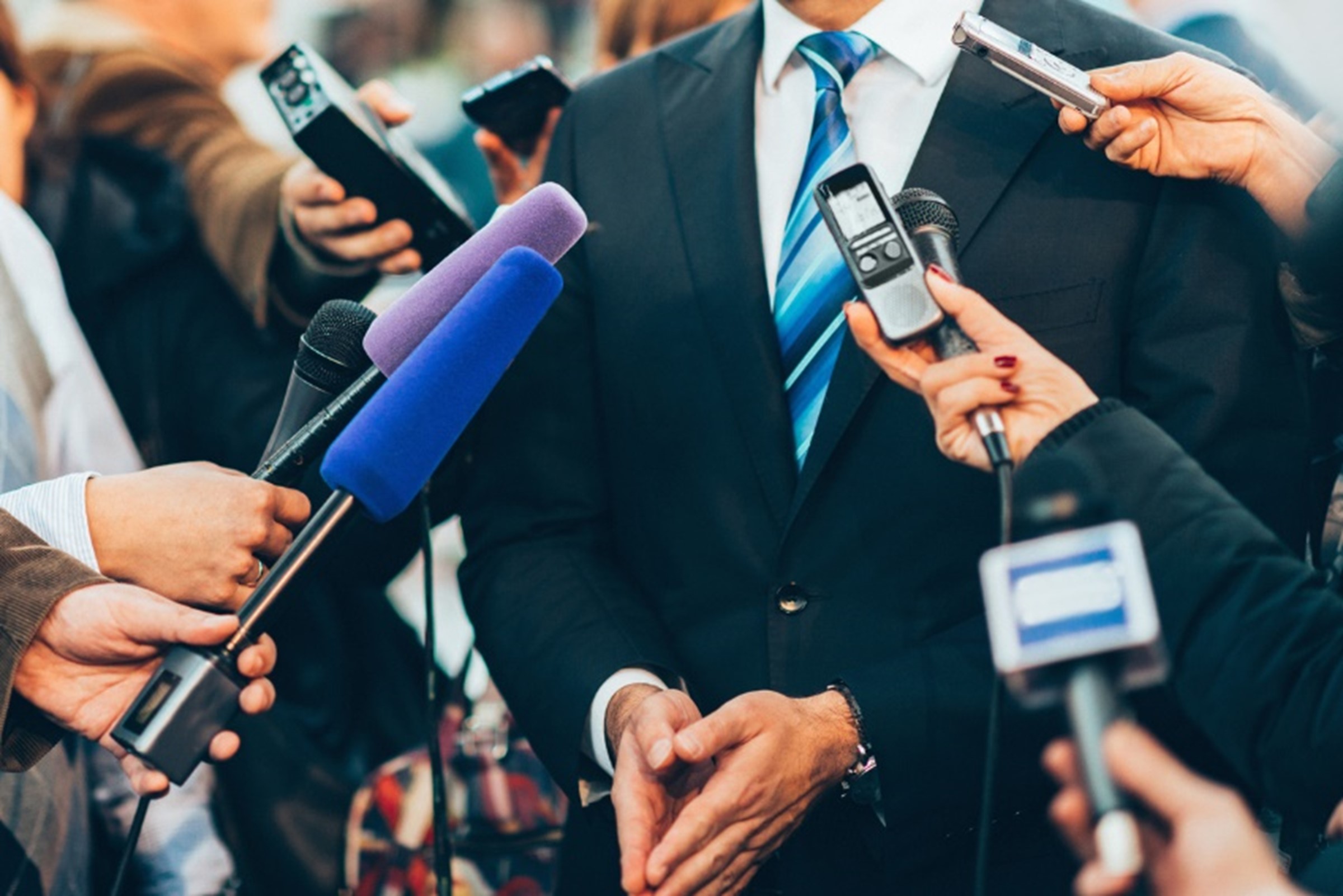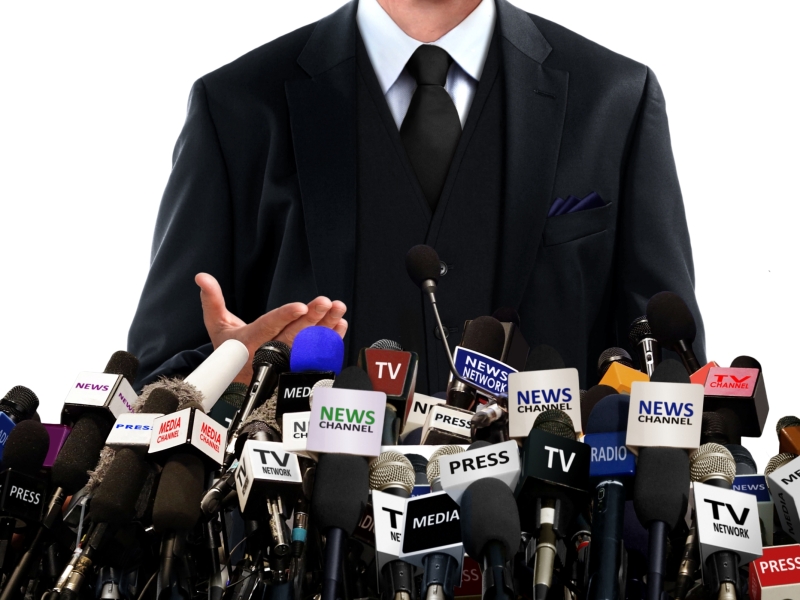
Handling difficult questions: strategies for media interviews
Knowing how to communicate effectively with the media is a valuable skill for any senior leader, in-house communications team, or spokesperson, but it becomes an urgent necessity when an organisation is in crisis or at risk of suffering long-term reputational damage. The pressure of being in front of the camera and microphone is extremely high, and any minor mistake has the potential to turn a salvageable situation into a controversial catastrophe.
With this in mind, it is essential for anyone who may be under the spotlight in a media interview setting to have had the correct training to perform well under pressure and protect their organisations reputation.
As leading experts in crisis media training, in this blog we explore how to prepare for and answer media interview questions and the various techniques to master before facing the cameras.
Preparation and research
When you have an interview planned, one of the first steps to take is to conduct thorough research.
But how do you prepare for a media interview, what research is needed, and how do you know when you are ready?
To start, you must take time to get to know the media outlet or publication and the journalist conducting the interview. Consider both the journalists usual format and typical angle for the outlet, likely lines of questioning and their style. In some instances, the interviewer may supply questions ahead of time, but this is entirely at their discretion. When we prepare clients for interviews our media trainers have a deep understanding of the UK media sphere and conduct thorough research on the outlet and journalist in question to provide as similar an experience as possible for our clients via training.
The importance of staying calm and composed
It is challenging, but staying calm and composed is the best way to handle a media interview. If in person, give yourself plenty of time to arrive, and if possible, find a quiet space to calm your nerves before the interview. Also, remember to stay in an interview mindset from the moment you arrive to the moment you leave, as there is always a risk of a hot mic moment where the interviewee can erode any great work done in an interview through their actions off air.
The interview with Oxfam GB CEO Dr Dhananjayan Sriskandarajah, who appeared on Good Morning Britain in 2023 after the charity faced significant criticism on the back of their guide, which urged people to use more inclusive language such as humankind instead of mankind, provides an excellent example of staying measured, calm and composed during hostile questioning. When faced with difficult questions, Dr Sriskandarajah stayed on topic, remained calm and answered the questions well without getting heated or upset, as it could be argued the interviewers did.
While staying calm and composed might sound like something that comes naturally to some and impossible for others, it can be trained. We offer voice and public speaking training, a course designed to prepare your mindset, improve your presence as an interviewee, and develop your voice for the camera. With this session from our specialist public speaking trainer, you can go into your interview with the confidence you need to remain calm and answer each question with composure.
Bridging techniques
There are various media interview techniques to consider before stepping in front of the camera or microphone. One of the most common methods for dealing with challenging questions is bridging, one of the foundations of any good broadcast media training. Essentially, it is a technique used by interviewees to control the agenda of the interview.
In practice, it could mean that the journalist has asked an irrelevant question or something that could paint the interviewee in a bad light. From here, the interviewee would repeat their key message or move the topic to something more relevant, showing that they are in control of the subject and only answering questions they have agreed on. Here are some examples of bridging statements:
- I think it would be more accurate to say¦
- What matters most in this situation is¦
- Before we move on, I need to add¦
- However, what is more important to consider is¦
- With that in mind, lets look at the bigger picture, which is¦
- What this information tells me is that¦
By remembering these statements, you will have a better chance of staying on topic, making your agenda clear, and appearing calm and focused.
Never lie & remain on track
Above all else, one principle that should guide anyone undergoing a hostile interview is to never lie. Remaining truthful is a fundamental part of delivering authentic and meaningful messages and the surest way of protecting your or your organisations reputation. If you are caught out in a lie, whether during the interview or afterwards, there is often little that can be done to regain stakeholder and public trust.
If your interview is being recorded for broadcast or printed in a publication, it is possible, if not very likely, that it will be edited in one way or another. Here, there is always a risk of journalists and the public taking snippets of the interview out of context, and if you have not remained on track and stuck to your key messages, your words can be easily manipulated. The rise of video content on social media is something to be aware of here, as interviewees who flounder or flip-flop are often the victims of videos that highlight these errors. To avoid these mishaps, remember to keep things simple, easy to digest, and straight to the point.
Practice and feedback
Like most aspects of public speaking and appearing in the spotlight, practice is everything. If you are preparing for your first media interview, it is understandable to feel nervous and apprehensive. Practice is the most effective way of calming these nerves and ensuring that the next time you are faced with a difficult question or put under a high-pressure scenario in front of an interviewer, you will know what to expect and how best to deal with the situation.
We always recommend that clients include practice interviews as part of the media training in your business plan. As part of our media training, we offer intense mock interviews with our expert trainers on the scenarios you would like to cover and those we suggest are likely topics to arise in your interview. We provide video playback, personalised feedback and expert notes to help you improve and polish your interviewing skills before you come face-to-face with the interviewer.
We offer media training that helps senior leaders, in-house comms teams, and spokespersons prepare for challenging interviews. Our in-house media training specialists will assist you in presenting yourself in the best way, clearly communicating your message, and effectively interacting with journalists.
Whether you require online media training or would prefer an in-person training session, we can tailor our service to provide you with everything you need to walk into an interview well-prepared. Contact our experts at 020 769 25675 or email us at [email protected] for information about pricing and personalising your training.


